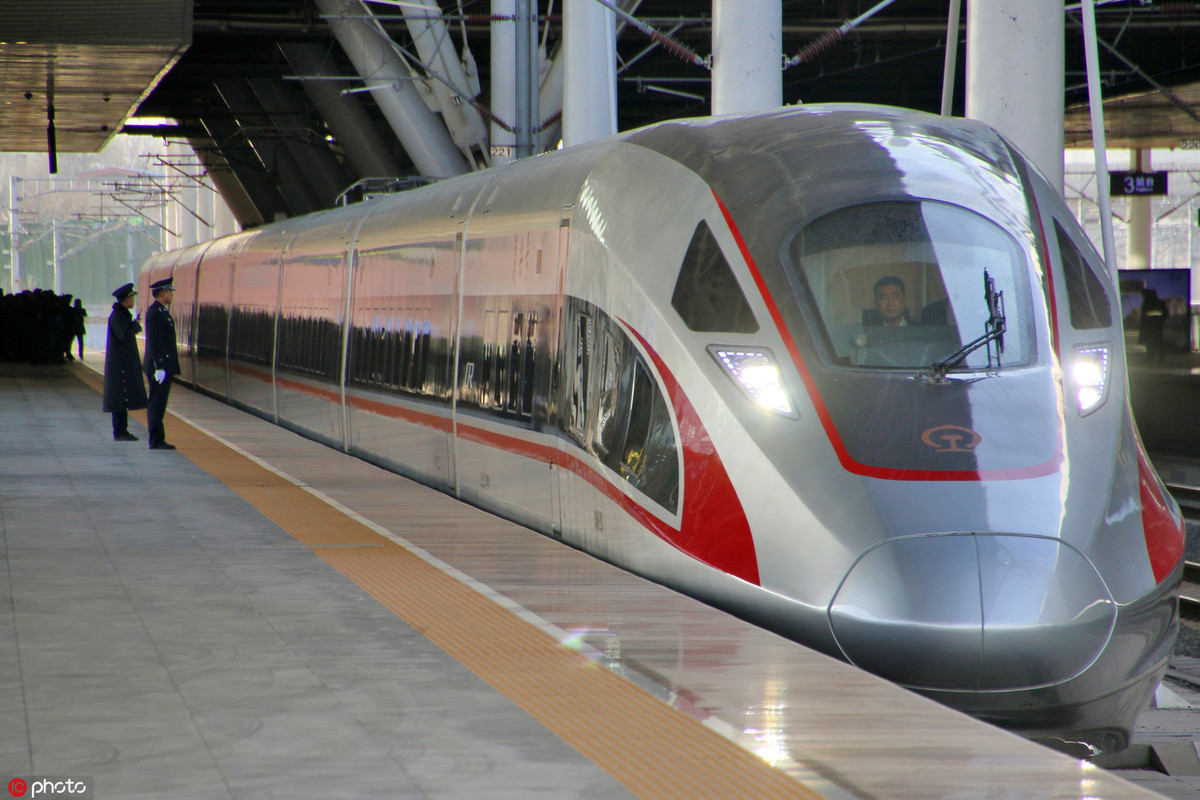High-speed project gets Kuwaiti funds


Jinan-Qingdao railway receives $200m investment from foreign investor
The Kuwait Investment Authority's investment in the Jinan-Qingdao high-speed railroad in East China's Shandong province will propel more global investors to be part of big-ticket projects conducted by State-owned enterprises, analysts said on Friday.
Their comments came after the State-owned Shandong Railway Investment Holding Group Co, signed an investment agreement to transfer a 7.16 percent stake to CICC Capital - an investment unit of China International Capital Corp and an investment subsidiary of Agricultural Bank of China for 2.39 billion yuan ($336 million) on Thursday.
CICC Capital has invested $200 million on behalf of KIA, making it the first time that a domestic high-speed railway has attracted capital from a well-known foreign institutional investor, according to Shandong Railway Investment Holding Group Co.
For many players at home and abroad, investing in China's State-owned projects or assets can generate assured long-term financial returns as some of them provide business for public services and are supported by local and central governments to boost the job market, said Chen Dongqi, an economist with the Academy of Macroeconomic Research at the National Development and Reform Commission.
"The risk of market fluctuations is relatively low and it (the investment) is a positive indicator of China's ongoing reform of State-owned enterprises," he said.
The Jinan-Qingdao high-speed railway commenced operations in December 2018. The 307.9-km railway has been designed with an operating speed of 350 km per hour. It has cut travel time between Jinan, the capital city of Shandong, and Qingdao, a coastal city in Shandong, to one hour from the previous 2.5 hours.
With this new line, travel time between Beijing and Qingdao has also shortened to 2.5 hours from 5.5 hours in the past.
"Such investment activities should be further encouraged and expanded to help more heavily indebted industries restore their earnings ability, and real economy sectors with competitive products and good market prospects," said Dong Ximiao, a senior researcher with the Chongyang Institute for Financial Studies of the Renmin University of China.
"The SOE reform is an open process, which aims to attract partners in all types of ownership," said Zhou Lisha, a researcher at the research institute of the State-owned Assets Supervision and Administration Commission.
"China also welcomes the participation of foreign enterprises in the process, if they are interested," she said. "With reforms deepening, the SOEs will take on a new look and gain new achievements."
In addition to the Jinan-Qingdao high-speed railroad in Shandong, the first privately controlled high-speed railway line in China is expected to wrap up in 2021.
Backed by Shanghai-based conglomerate Fosun International Ltd, the Hangzhou-Shaoxing-Taizhou line will stretch 269 kilometers across the central and eastern parts of East China's Zhejiang province.




































